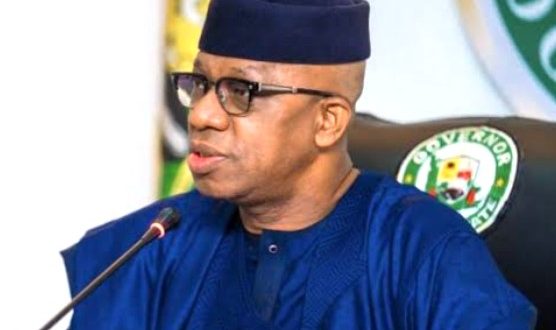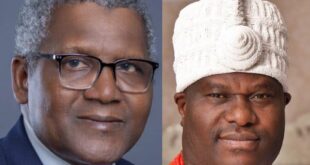Opinion
By: Sakirudeen Bashiru
On not a few occasions, questions have arisen as to the relevance of traditional institutions in Nigeria today. And you won’t look far to appreciate these concerns, especially given the realities of leadership and the crisis therein, rocking the Nigerian federation. But, it is worthy of observation that the geographical location, which has come to be known as Nigeria, before the advent of colonialism symbolized various individual geographical political units, defined by tribe, religion, ethnicity and other such complexities that defined statehood, before the emergence of today’s modern nation-state. Thus, the only known administration of communities during the pre-colonial era was the traditional institutions. However, with the advent of colonization, the traditional institutions were relegated to serving the colonial powers. Even though the people were still administered through the institutions from the principle of ‘indirect rule’ the real power was in the hands of the colonial agents.
One thing however certain! All these units developed peculiar political patterns that were suited for their cultural religious geographical and tribal sentiments. It is these forms of governmental structures that we have come to refer to today, as traditional institutions. These institutions, which held sway prior to the conquest of the hitherto existing empires and kingdoms by the Europeans were not reinstated when the colonists were leaving, thereby leaving the question of essence and existence to the caprices of the new and emerging political elite, who continue to govern even to this day. The laws and statutes that have evolved from the pre-independence era, which relegated the traditional institutions, continue to be perpetuated by a lot of today’s political elite; that is, until the emergence in Ogun State, of a people friendly and culturally sensitive administration, such as the administration of Prince Dapo Abiodun, who has left no stone unturned, at ensuring that our great State, Ogun, enjoys the greatest benefits of the immensity of the wealth of the traditional institutions for the government and of course the people also.
Upon independence, the modern political powers and administration of the country, was handed over to civilian personnel, with little or no recognition of the traditional institutions. However, subsequent manifestations in the country’s general political system, underscored the need to involve the traditional institutions in governance in its socio-economic development.
Wikipedia defines socio-economics (also known as social economics), as the social science that studies how economic activity affects and is shaped by social processes. In general, societies are divided into three groups: social, cultural and economic. It also refers to the ways that social and economic factors influence the environment. On the strength of this definition, one would naturally ask whether today’s traditional institution can find, or is trying to find relevance within the socio-economic sphere, particularly in Ogun State, our place of reference. Without doubt, development is essential in the life of every community; and it behooves on every institution to contribute to it, in order to safeguard its continuous existence, thus, the traditional institutions have remained a dominant part of Nigeria’s communities and recognized by the people for homage and reverence.
While it is observable that the 1999 Constitution passably recognized the existence of traditional institutions, it however failed to state specifically, its exact position in the scheme of governance. Gradually though, the institutions have become handy to modern governments as possible medium of settling minor disputes and also in the area of socio-economic and political development of the Nigerian communities.
Since the emergence of Prince Dapo Abiodun as the Ogun State Governor in May 2019, the administration recognized the sacred nature and impact of traditional rulers in bringing people closer to the government. Not only that, it also recognized the importance of traditional institutions as a panacea for all-round development. To this end, the Prince Dapo Abiodun-led administration has seen to the filling of vacant stools and installation of Obas in communities whose traditional rulers had transited long time ago. And what’s more? These installations were effected, to reflect the four geo-political categorization in which the Ogun state has been delineated with consideration for all the necessary laws and processes involved in choosing Obas, ranging from Chiefs Law, Laws of Ogun State, Nigeria, Registered Declaration as well as the Customs and Traditions of each communities.
Some of these Obas include, Oba Yisa Adeniyi Olaniyan the 46th Onipokia of Ipokia Kingdom, Olu of Tigbo-Ilu, Oba Olabode Thomas-Fagbayi, Opo of Idosemo, Oba James Ajibola Igbowu, Elemuren of Emuren, Oba Alowonle Adesegun Bolaji, Olodan of Odan-Abuja-Sule, Oba (Engr.) Nosiru Tesilimi Ayinla, Alaye of Oniro Agude, Oba Sikiru Oluwarikon Adegbola and Olu of Abalabi, Oba Bakare Biobaku Osunrinde to work with other royal fathers in their Local Government Councils, seek advice when necessary, to justify the trust reposed in them by the Government and the people of their communities.
Furthermore, The administration, realizing the importance of the traditional institutions at entrenching peace and order in their spheres of influence, have taken traditional rulers to task on some of these issues! Issues relating to minor chieftaincies, chieftaincy disputes prescribe authority conflicts, Baaleship, communal unrest, unacceptable conduct among others were expected to be trashed out without delay in order for peace and orderliness to reign supreme in the communities.
Meanwhile, socio-economic system at the regional level refers to the way social and economic factors influence one another in local communities and households. These systems have a significant impact on the environment through deforestation, pollution, natural disasters, and energy production and use. Through telecoupled systems, these interactions can lead to global impact. Local economies, food insecurity, and environmental hazards are all negative effects that are direct outcome of socio-economic systems. And in this light, mention must be made of a certain Oba Adeleke Adekoya, the Bejeroku of Oke-Agbo, in the Ijebu North Local Council of ogun State, who displayed his readiness to join hands in support of the Government, in its drive at making life comfortable for the citizenry upon assumption of office, by putting up a programme called operation “PLANT 5000 TREES PER VILLAGE”; – a scheme to be operated under the approval of the state governments through the Ministry of Forestry.
The Oba affirms that preliminary discussions on the implementation of the programme, have reached advanced stage, pledging half a million naira as SEED FUND to purchase initial seedlings to be planted by the people under the supervision and support of the Government. This project when kick started would no doubt improve afforestation and increase employment generation in the area. It is no gainsaying that traditional rulers apart from being closed to the people at the grassroots are positive contributors to growth and development of their different domains in tandem with the agenda of the government. But there is the need for traditional rulers to elevate themselves above the mundane and ephemeral considerations that appear to bedevil a great deal among their peers, who continue to see their stools as means of oppression and extortion of their subjects.
*Bashiru, Press Officer, Ministry of Local Government & Chieftaincy Affairs, Oke-Mosan, Abeokuta, Ogun State.
 Startrend International Magazine For Your Latest News And Entertainment Gists
Startrend International Magazine For Your Latest News And Entertainment Gists





